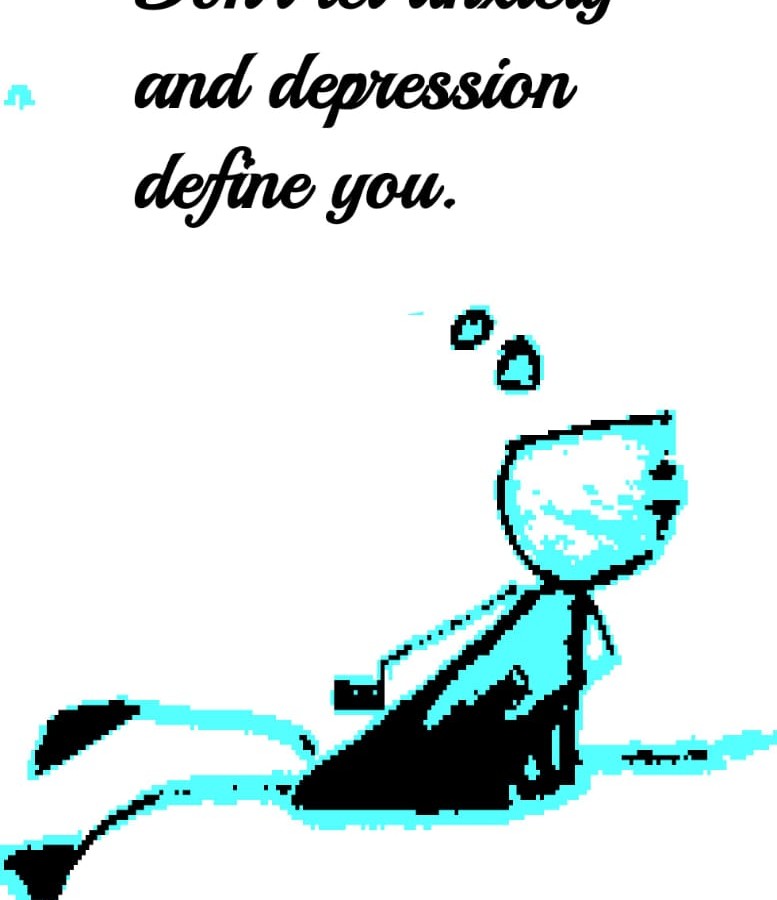The pandemic has brought into the mainstream the impact of mental health issues on our wellbeing, anxiety and depression being at the forefront.
Individuals diagnosed with anxiety and depression struggle one day to another in their efforts to meet their needs and those of their loved ones.
Psychoeducation or working knowledge of your adversaries will enable you to seek help and take preventive measures.
Having anxiety and depression means feeling overwhelmed and having difficulty visualizing an end to these negative feelings, thereby creating more upheaval. What makes this journey more challenging is the lack of control and feelings of helplessness.
Anxiety can be best described across a spectrum: from mild to debilitating. To elaborate on this, you feel uneasy or fearful in certain situations, like having a stomach ache before leaving your house. Once this feeling becomes out of control, having excessive and uncontrollable worry about several different things, getting groceries, laundry, or meeting friends, you prefer to stay in your house.
Depression is feeling low, unable to do your daily routine or lose interest in activities you had previously enjoyed. Here, it is essential to understand that having these negative feelings or being inactive is not under the individual’s control.
Sleep problems, loss or gain of appetite, low self-esteem are common denominators in anxiety and depression. Another pertinent fact is stress can exacerbate the symptoms of other mental health illnesses, including depression.
While working with a client with a mental health diagnosis, I focus on anxiety management in the first session; relaxation exercises to sleep better so that their current mental health does not take a further dip.
Awareness of any physiological signs accompanying anxiety, shoulder pain, breathing problems, stomach cramps, mental fog, for example, helps. It can be the first step you can take towards recovery, as it gives you some semblance of control over your negative feelings of being overwhelmed, constantly worrying or the guilt of not doing enough.
Additionally, you can take measures as soon as you start feeling uneasy, which helps as it prevents your anxiety from escalating. You’re also building new responses to your chronic issues. Instead of going back to bed when you feel overwhelmed, you would do deep breathing and stretching exercises, follow a planned activity, phone a friend.
During group therapy sessions, I had clients inform me that having a plan to ward off or decrease anxiety was like putting money in the bank. The more they worked on honing these skills, the better they became at controlling their body’s physical responses to anxiety.
The task at hand is to identify and acknowledge that having anxiety causes problems in your everyday functioning. It can be in concentrating and focusing on a job. At times, feelings of impending doom can make routine activities challenging to do, having problems ascending down the steps at your home due to fear of falling.
Depression can lead to an inability to wake up early in the morning or miss out on morning rituals, like drinking coffee. Any noticeable changes in behaviour an individual displays can serve as a wake-up call for themself and their family and friends.
One of the main barriers to accepting anxiety and depression is the stigma around mental health issues. Due to the fear of being judged by our friends, community or colleagues, we tend to lead a ‘dual” life. The pressure of being “seen as normal” exponentially increases our mental health problems.
Acceptance of any adverse event or life situation does not happen overnight. Awareness and strategic planning help the individual understand that “having anxiety and depression does not define who I am.”
This article adapted from my article published in the Telegraph-Journal.
The picture is from Mind Matters A.S. Consulting;
https://www.facebook.com/mindmattersasconsulting//
Disclaimer: This article is for informational purposes and should not substitute for consultations with a qualified professional.


